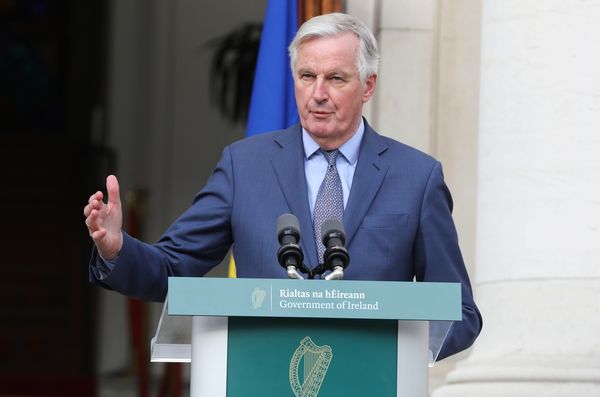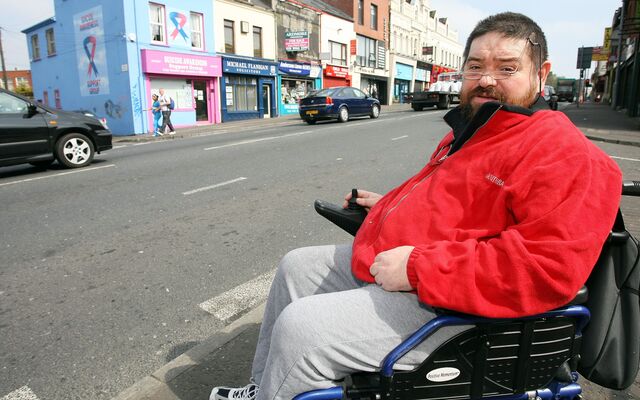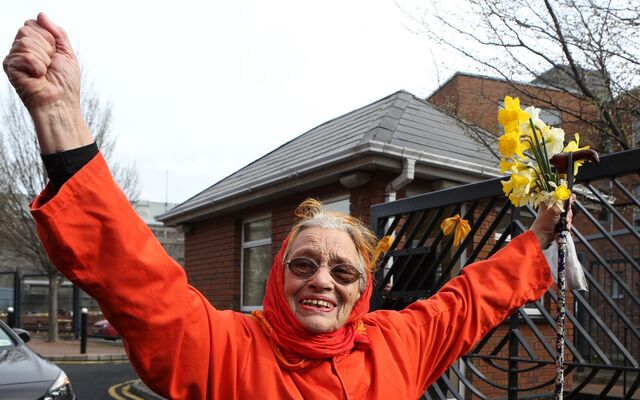Whatever about the confidential nature of his Brexit diary - aren't all diaries secret after all? - Michel Barnier's level-headedness, vast experience and sense of purpose and deep appreciation of the peace process all combined to make his Brexit negotiations with the British a masterclass in diplomacy. The overwhelming sense after reading this delightful account is that the negotiations were very much a case of men and boys - you pick who was who.
Admittedly, the British negotiating team facing Monsieur Barnier across the socially-distanced meeting rooms in London and Brussels, was disjointed, dysfunctional and doltish but nevertheless, the EU Chief Negotiator's success in ensuring the final Brexit deal avoided a return to a hard border in Ireland is as important a victory for the peace process as the Good Friday Agreement itself.
Fed on a tabloid diet of hapless Europeans, the British found themselves underestimating the intellectual brilliance and deep-seated determination of M. Barnier. While they focused on bendy bananas and side-of-the-bus rhetoric, the bold Barnier stayed glued to his three priorities from the start of the talks: secure the peace in Ireland, get a solid financial settlement from the Brits, and protect the rights of EU citizens in the UK (and vice-versa).
"We respect the British decision to leave our Union, even though we continue to regret it deeply. But we also ask the British government to understand that someone who leaves the Union cannot be in the same privileged position as a Member State " @JunckerEU #SOTEU
— Michel Barnier (@MichelBarnier) September 12, 2018
Neither he nor his team wavered – and quite the A-team it was too — thanks of course to the fact that they had the backing of the European Council (forum for the 27 'PMs') as well as the fulsome backing of the European Commission and the EU Parliament for their approach. Still, only a giant of European politics like Barnier could have managed to keep all 27 EU states on board from 2016 until negotiations concluded in December 2020.
One might understand France or Germany, European heavy-weights backing the cause of Ireland, but for Croatia, Slovenia, Austria, Lithuania and other countries far-removed from our shores to do so was nothing less than humbling for those of us who gave Brexit the two-fingers in the 2016 referendum.
"We respect the British decision to leave our Union, even though we continue to regret it deeply. But we also ask the British government to understand that someone who leaves the Union cannot be in the same privileged position as a Member State " @JunckerEU #SOTEU
— Michel Barnier (@MichelBarnier) September 12, 2018
True, the EU regards the Irish peace process as its crowning achievement but who would have blamed Poland, with its 900,000 citizens living in the UK, if it had have bowed to relentless London threats and argued for more concessions for the Brits? Yet, the 27, including of course our colleagues in the Republic of Ireland (who come out well in this account for their steadfastness), could not be picked off by doughty British ministers hopping from one European capital to the next.
I had seen this nascent unity up close in late 2016 when I blagged my way into a meeting of EU Ministers for Europe in Brussels — courtesy of an empty spot left by the boycotting British. Under EU protocol, if the senior minister from London doesn't weigh in, the empty seat goes to the senior minister from the 'devolved regions'. Turns out, that was the visiting finance minister from Belfast, enabling me to take a seat behind my Union Flag-adorned place name. As proceedings wound up, I asked to speak, much to the bemusement of the European ministers who weren't sure what to make of this interloper. I took the opportunity to praise the cohesion of the EU and their recognition of the fact that the North had voted against Brexit. I reminded my esteemed audience that that we have been Europeans on this island at least since Columbanus sailed down Belfast Lough in 590 AD on his marathon journey to spread the Good Word in Europe, along the way establishing the famed monastery at St Gallen. On my way from the room, the Bulgarian delegate grabbed my arm to thank me for my contribution. "We won't let the Irish down," he said. Budapest is 2,475 km from Belfast. The Brits hadn't a chance.
BONG! So, that's that, then. Bye, bye Brussels!
— Martin Daubney 🇬🇧 (@MartinDaubney) December 31, 2020
Barnier, Tusker, Verhofstadt, Juncker, von der Leyen, Macron, Merkel... you guys took one hell of a beating
Thanks to the 17.4 million. This one's for you. It was an honour to stand up for you 👏🇬🇧🍾 pic.twitter.com/F7e9GQhdBI
And of course in Michel Barnier, the Irish had a friend in court. In fact, he knew the boreens of Monaghan and byways of South Armagh, and the peace walls of Cupar Way and Cluan Place better than any of the British politicians he faced, having pioneered the transformative PEACE programme of the EU following the Good Friday Agreement. It's only page 50 and already Barnier has his cards on the table and heart on his sleeve: "I would never want to be responsible for undermining the peace process and the Good Friday (Belfast) Agreement," he writes. "On a little road in County Monaghan, the Republic of Ireland is separated from the UK and Northern Ireland by nothing more than a yellow line in the middle of the road. Here more than anywhere else it is clear that, since its inception, the EU had managed to knock down borders within its territory, building bridges while helping to destroy walls and barriers. It is this achievement that we need to preserve in Ireland, one way or another."
Photo duJour: @DUPleader Arlene Foster and Iain Duncan Smith arrive at the EU Commission in Brussels to meet with EU chief negotiator, Michel Barnier. By Stefan Rousseau/PA pic.twitter.com/7YbEaFcA56
— Stefan Rousseau (@StefanRousseau) April 11, 2019
What then would the charmers of the DUP, whose sole interest in Brexit was building a Trumpian wall between North and South, do to win over this champion of the frictionless border? Treat him with contempt and derision, of course. In face of his unfailing courtesy and consummate professionalism, the DUP responded with the dour dogma which has made them the darlings of every Brexiteer wing-nut in Britain.
Though, admittedly, even for the DUP, the decision of then First Minister Arlene Foster to boycott Michel Barnier's visit to Stormont in January 2020 represented a new nadir — and perhaps the most self-defeating snub to a visiting dignitary since 1995 when Sammy Wilson refused to line up in City Hall to welcome Bill Clinton.
Of course, Ms Foster had form in that regard: when Monsieur Barnier met "'the iron ladies'" of the DUP in Brussels in March 2018, the EU chief negotiator was surprised that it was Diane Dodds and and not the First Minster who spoke for the delegation. "It is not easy to know where the power lies in this party," he muses.
Though that January 2020 trip to Belfast did offer up one illuminating moment when a student at Queen's University asks Barnier, "quite emotionally", what is to come of us post-Brexit. He writes: "I reply: 'Speak out, use your voting power, get involved. No one can stop you from being European.'"
To say Barnier had the DUP's number would be a understatement. After walking the streets of Derry — "I can't help of think of Bloody Sunday, and the tragic battles that took place on these streets." — he writes, "The tragedy is that the DUP, which represents just over 30 per cent of the electorate in Northern Ireland, is holding to ransom not just all the other players but the whole of British political life, just because its ten MPs provide Theresa May with the votes needed for her majority in the House of Commons. Nothing constructive can be expected of this party which fears movement towards reunification of the island."
Michel Barnier arrived at Lough Egish food plant in Co Monaghan to a media scrum. #brexit #vfs pic.twitter.com/mzOGRGP3tM
— Sara O’Kane (@sara_utv) May 12, 2017
The EU point man didn't have his sorrows to seek either. An embattled Theresa May was replaced by an erratic Boris Johnson who, notes Barnier, peddled lies to his base similar to the porkies which had won Brexit originally.
Ultimately, bluster and bullying so beloved of the DUP delivered the 'Union-subjugating' Sea Border and enhanced support for a United Ireland. For the English it delivered an economy predicted to grow this year at a slower rate than the economy of Russia and lorry lines at Dover which can be seen from outer space.
Pointedly polite, Barnier avoids disparaging his opponents but few shine. Indeed, of all the British interlocutors only the colourful David Davis comes anywhere close to the diplomatic stratosphere where Michel resides. Indeed, so woebegone were the British negotiators that Boris was reneging on the deal he approved before the ink on his signature was dry. Undoubtedly, the European Commission's Chief Negotiator's sense of humour helped him weather the bombast of the British tabloids - who early on dubbed their European partners Donald Tusk and Emmanuel Macron as 'DIRTY RATS'.
🕊️25 years of the Good Friday (Belfast) Agreement - a moment to reflect on an exceptional shared achievement, made possible by brave women and men. For a future of peace, dialogue & respect.
— Michel Barnier (@MichelBarnier) April 10, 2023
Best wishes to all people on the island of Ireland, of all communities & traditions.
Monsieur Barnier is, of course, too much of a gentleman to take any pleasure in the damage the British were doing to their own cause - not least by claiming to leave Europe because it was too distant from the common man and woman and then vowing to sign up to an anything-goes, race-to-the-bottom trade deal with the US. But who would deny him a little schadenfreude at the sight of Brexiteers forced to live with their disastrous decisions? He writes: "according to an official document presented by Michael Gove, British business will have to fill in 215 million additional customs declarations at an estimated annual cost of £7 billion. As some commentators point out, the day when Brexiteers promised fantastic savings from Brexit now seem like a distant memory..."
Barnier's Brexit opus then is as magisterial as the man himself - an important document which reminds us of the miracle which is the European Union and, our continued membership of the Customs Union and Single Market notwithstanding, stregthens our resolve to join the EU again — via the only route available.
My Secret Brexit Diary, Michel Barnier. Polity 2021.








